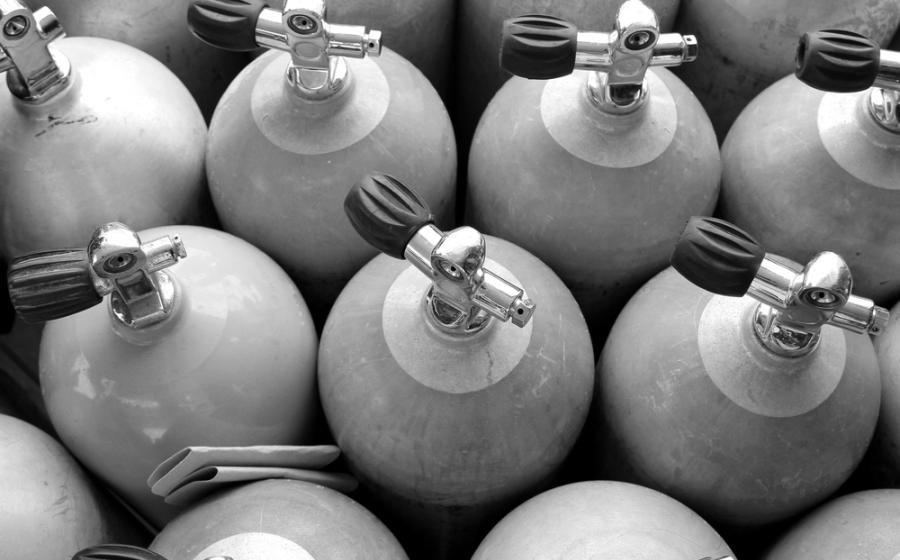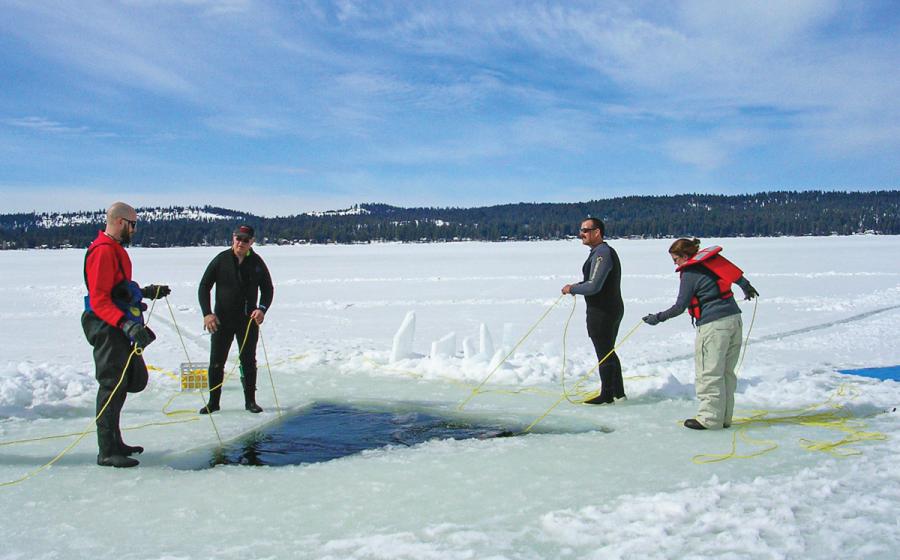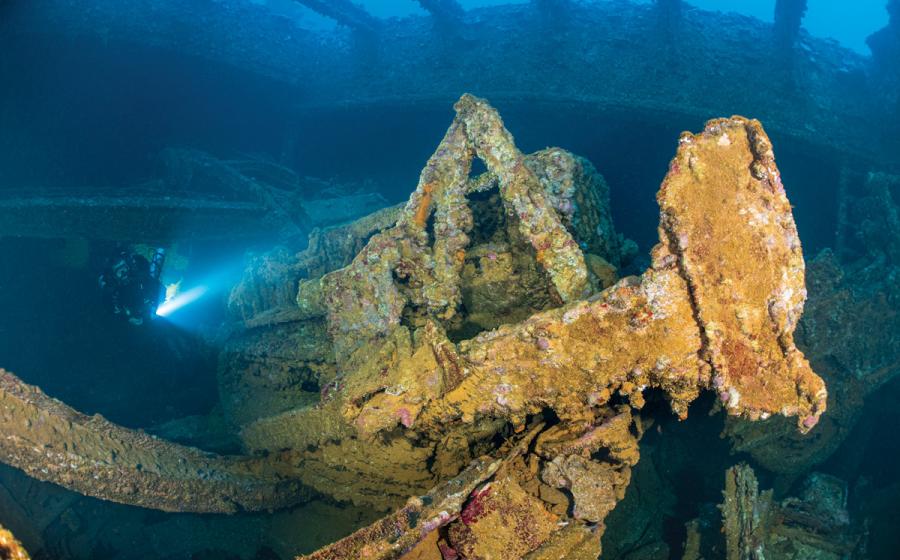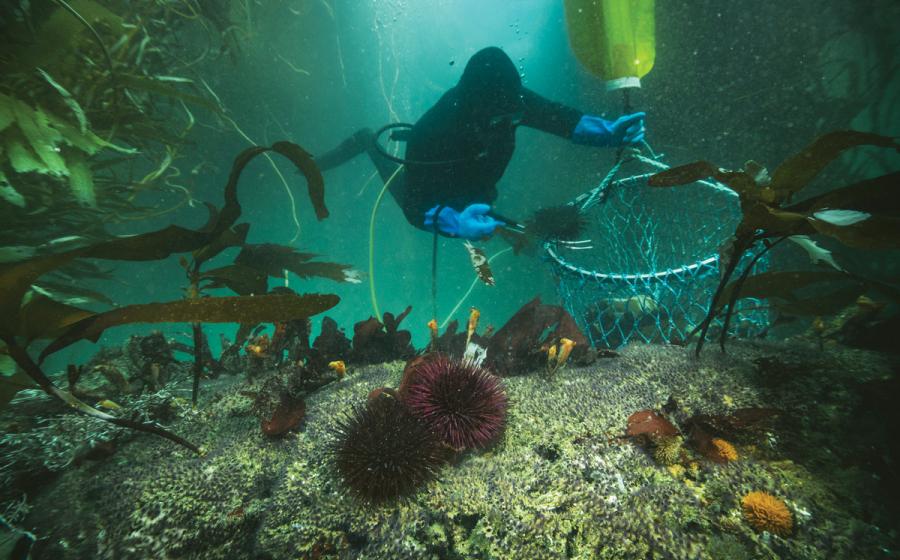Sea Hero: Rick MacPherson [August]
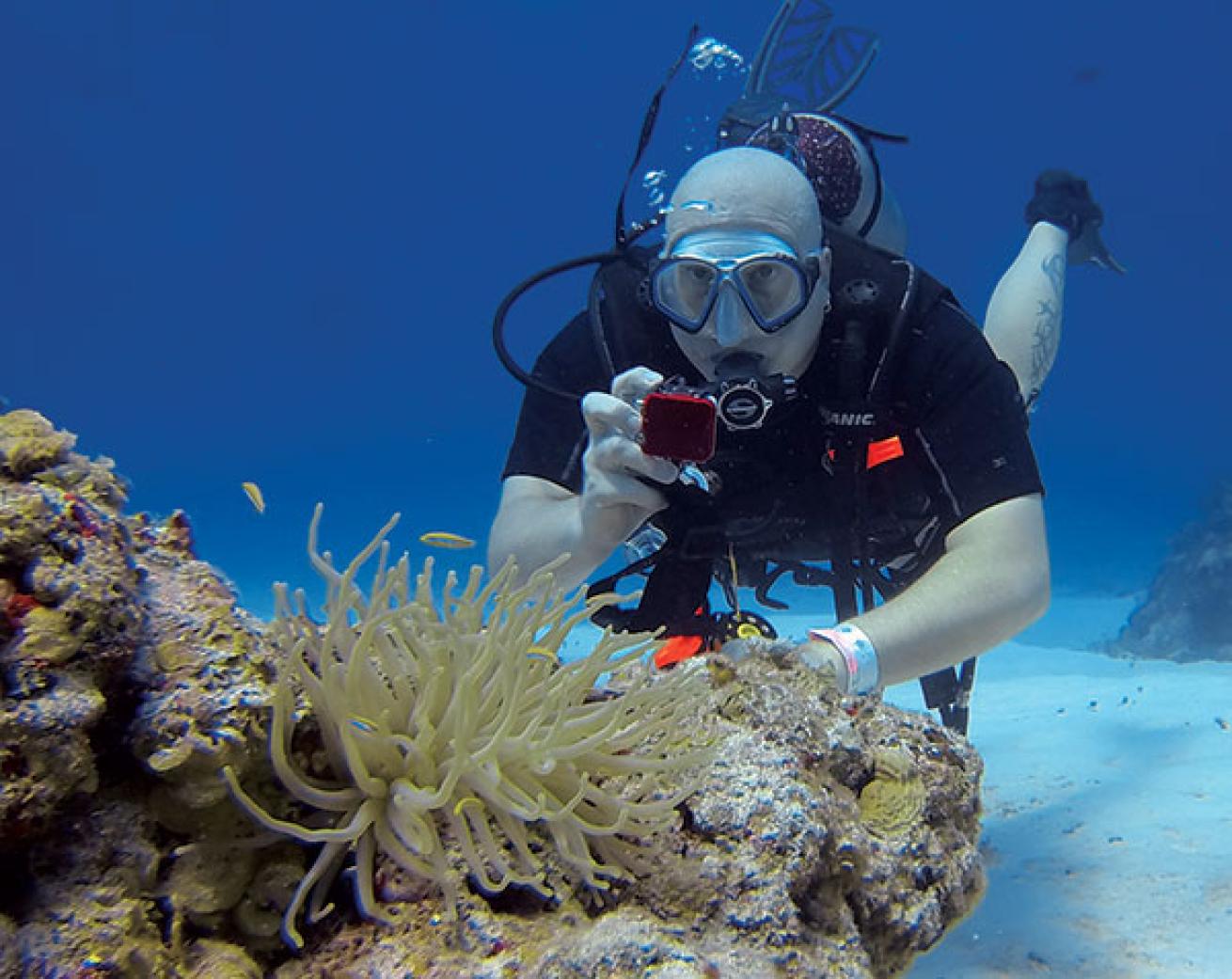
Courtesy Jason Vasques
Founded nearly 20 years ago to galvanize the dive community, the Coral Reef Alliance has grown into the only international nonprofit focused exclusively on coral. Rick MacPherson, CORAL’s conservation programs director, has worked to build a global team of local conservation leaders in every country in which CORAL works — for his efforts, MacPherson is our August 2013 Oris Sea Hero.
Coral Reef Alliance is involved in many projects, tell us a little bit about what Rick MacPherson is most focused on right now?
I am focused on addressing threats to coral reefs at the local scale — meaning partnering with local communities around the world to solve problems like water pollution, overfishing and unsustainable tourism. In many communities, treated sewage wastewater and urban runoff are polluting the water surrounding coral reefs — but coral reefs need very clean, clear water to thrive. Reef fish are being overfished for restaurants. And in some areas, damage to reefs from tourists is still a problem — although we have made a lot of progress in that regard. Having been born out of the recreational diving community, CORAL has made a significant investment during the past 18 years in developing best environmental practices and standards for the marine tourism industry. We've trained and evaluated thousands of dive professionals around the world who influence millions of dive tourists each year. That's a powerful platform for messaging and modeling sustainable behavior when diving on coral reefs.
But dialing down unsustainable diving behavior is not enough. I've begun looking at how CORAL can help improve coastal water quality through more effective and efficient management. For example, we are testing new strategies with hotels to reduce the amount of wastewater they discharge near reefs by working with them to re-use that water for landscaping. And by helping communities set up and manage dive parks and marine protected areas, we are trying to see how we can balance the economic interests of local fisheries while maintaining sufficient fish populations and preserving their ecologically important roles on the reef.
When Scuba Diving magazine interviewed you in 2011, you told us that CRA takes that "alliance" seriously, working with local partners. Are there special challenges in that approach as opposed to just being a funder?
When I think about the word collaboration in my conservation work, I'm reminded of a famous line from the movie The Princess Bride "You keep using that word. I do not think it means what you think it means."
Successful collaboration in any human endeavor requires a serious commitment to the process of partnership. A lot of organizations toss out the word “collaboration” in describing their approach, yet these are the same organizations that refuse to budge an inch when we are seated around a table. I take my commitment to collaboration very seriously. You might say that approach is in CORAL's “DNA.” True collaboration takes more time, requires patience, and means that I must accept that my personal point of view might not actually be the best approach (or even correct). It means checking my ego at the door when I enter discussions with partners. I think that can be a scary proposition for a lot of conservation practitioners, but I've always found this approach to build the most meaningful and enduring conservation outcomes.
In 2011 you said that the decade we're in now will be critical for coral, that by 2020 we must see significant changes and commitments from local governments — what's changed since that interview (if anything)?
I think the conservation community has made some strides in our messaging that coral reefs are in serious trouble. For instance, we now have multiple “report cards” that have been developed around the world that independently corroborate that our reefs are failing. We are doing a better job of communicating to the public and to decision makers that the combination of global stressors like climate change and ocean acidification coupled by the local threats to coastal water quality, from overfishing, water, pollution, and coastal development are really putting the squeeze on coral reefs. But we certainly must do more. To that end, CORAL's Reefs for Tomorrow Initiative has been working with the scientific community to understand how we can make better decisions about managing reefs that are tailored to the specific needs of and threats to a particular reef. This approach will save precious time and limited resources, two factors that are not currently on our side.
How can individual divers and Scuba Diving magazine readers help further the work you are doing?
Divers and readers can help by aiming for a zero footprint on the reef when they visit coral reefs. They can help by supporting the dive parks that provide an alternative income to fishing for coral reef communities and other local alternative livelihoods — often some type of ecotourism — that put money back into the community. They can support hotels and resorts that are participating in best practices for reefs. And we can all help by reducing our own contributions to climate change and poor water quality: drive less, conserve energy and work to stop water pollution (participate in beach and creek cleanups, etc.) wherever you live — we all impact the ocean.
What achievement are you most proud of?
For reef conservation to endure, it must be locally owned. My proudest achievement at CORAL has been building a global team of talented, passionate and effective local conservation leaders in every country in which CORAL works. These are individuals who are part of their community, and who care deeply about the sustainability of their ecological and cultural heritage. I am inspired and energized daily by what they contribute to our mission.
Who are your Sea Heroes?
My heroes are the partners, collaborators and supporters I meet in reef destinations in which CORAL works who are walking the talk when it comes to coral reef conservation. These are the divers who know how to have a zero footprint on the reef by managing their buoyancy or fin control. They are the dive guides and shop managers who put reef health first by modeling best practices to their clients and intervening when they see unsustainable behavior. They are the hotels that reduce the amount of wastewater that percolates onto reefs by re-using that water for landscaping. They are the fishers who respect no-take protected areas because they see the investment in their children's future by not bringing every last fish to market. These are individuals, groups and businesses making tradeoffs in the near-term in order to reap long-term benefits. These are my heroes.
What's next for Rick MacPherson?
My vision for coral reef conservation is that every local reef community anywhere on the planet is able to reach to a neighboring village, island or nation for the assistance it needs to solve its reef challenges. And that means local reef communities are leveraging their experiences, lessons learned and capacity to say, "Yes, we had these challenges once as well and here is how we solved it!" There's something powerful and fundamentally different about local reef communities helping other reef communities that NGO assistance cannot begin to match. I see my work as helping to identify and build these local leadership teams and "nodes of excellence.” It's exciting and certainly ambitious, but the payoff potential for reefs and people into the future is off the charts.
Meet all of the Sea Heroes and see what they are doing to save the ocean.

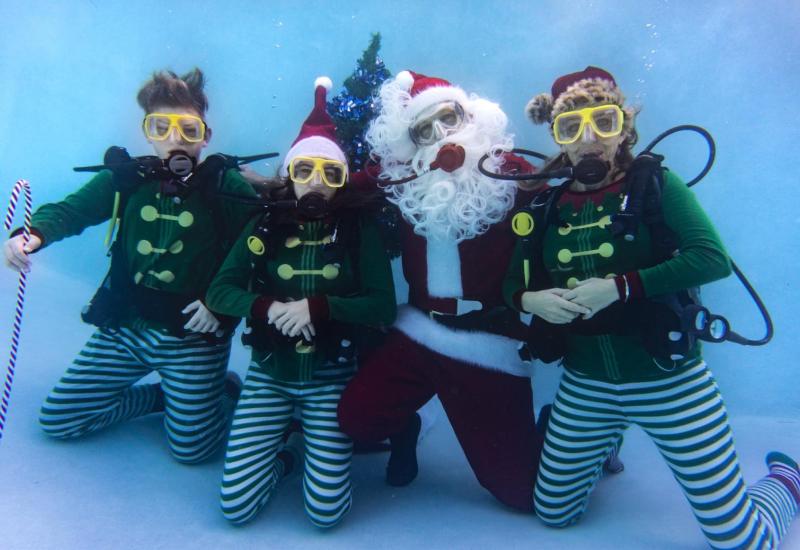
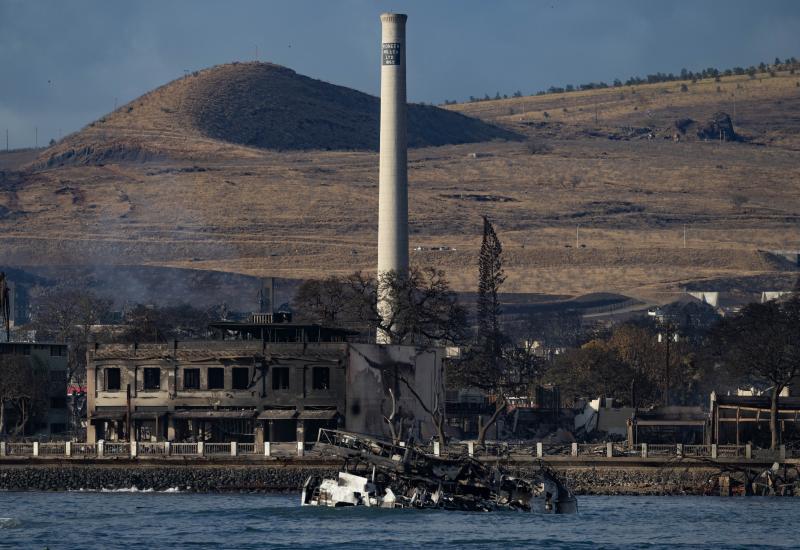
.png?itok=wW_XQefZ)


